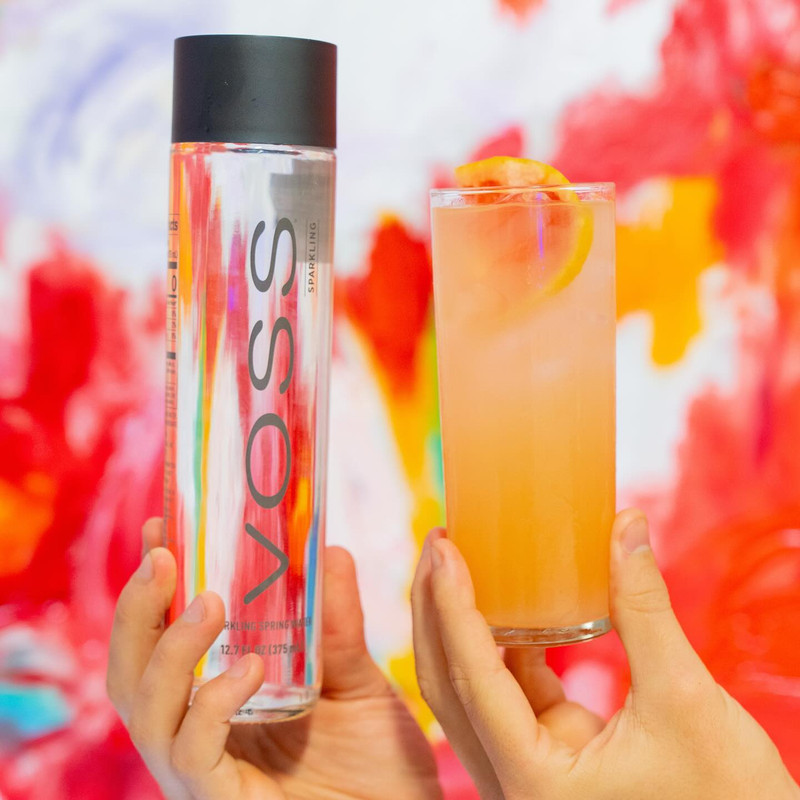8/01/2020
#lgbtqia+ Talk - How the Philippines still has to learn according to THE STONEWALL GLOBAL WORKPLACE EQUALITY INDEX
Hi Lovelies,
It's Lovely
HERSELF
and in today's post, I am going to talk about the current situation here in the Philippines especially if the country is a warm welcoming country for us LGBTQIA+ community members.
This article is in cooperation with the Stonewall UK organization and info materials can be found on their website.
What is Stonewall UK doing and what are their priorities?
"Our mission
We're here to let all lesbian, gay, bi and trans people, here and abroad, know they're not alone.
We believe we're stronger united, so we partner with organizations that help us create real change for the better. We have laid deep foundations across Britain - in some of our greatest institutions - so our communities can continue to find ways to flourish, and individuals can reach their full potential. We’re here to support those who can’t yet be themselves.
But our work is not finished yet. Not until everyone feels free to be who they are, wherever they are.
Our priorities
Empowering individuals
We empower LGBT people to be their authentic selves, enabling them to realize and achieve their full potential, and we empower LGBT people and allies to create positive change. We will support individuals to understand how they can make a difference for LGBT people at work, home, and in their communities. We will equip them with the tools and confidence to connect with, influence, and enable others in their communities. They will challenge homophobic, biphobic, and transphobic bullying, celebrate differences, and step up to improve inclusion and visibility of role models and allies. Increasingly, we will work in partnership to grow our reach, and network of empowered individuals, internationally.
Transforming institutions
We work with institutions to create inclusive and accepting cultures, to ensure institutions understand and value the huge benefits brought to them by LGBT people, and to empower institutions as advocates and agents of positive change. We will work with all organizations (including employers, schools, healthcare providers, sports organizations, and religious institutions) to ensure they offer inclusive, equal, and inspiring environments for LGBT people, and to empower them as advocates and agents of change in wider society. We will help institutions recognize the value of different perspectives, and the benefits these bring to employees, service users, and members of the community. We will collaborate with local LGBT campaigners to help UK-based multinational employers extend their LGBT inclusion work to every country they have an influence in.
We work with institutions to create inclusive and accepting cultures, to ensure institutions understand and value the huge benefits brought to them by LGBT people, and to empower institutions as advocates and agents of positive change. We will work with all organizations (including employers, schools, healthcare providers, sports organizations, and religious institutions) to ensure they offer inclusive, equal, and inspiring environments for LGBT people, and to empower them as advocates and agents of change in wider society. We will help institutions recognize the value of different perspectives, and the benefits these bring to employees, service users, and members of the community. We will collaborate with local LGBTcampaigners to help UK-based multinational employers extend their LGBT inclusion work to every country they have an influence in.
Changing hearts and minds
We work to ensure that LGBT people, across all communities, are valued, welcomed by all, and can participate fully in society, and to ensure that LGBT people better understand and respect differences across LGBT life. We will go deeper into communities than ever before, working with those communities, their partners, and allies, to demonstrate the strengths that our differences can bring. We will ensure that LGBT role models and allies are visible throughout public life to create an environment that enables all LGBT people to participate fully in society. We will work together, as diverse LGBT communities, and with our wider communities, to change and win hearts and minds, and to tackle prejudice or discrimination within LGBT communities.
Changing and protecting laws
We work to ensure that laws and rights essential for LGBT equality are created, maintained, protected, and defended so that LGBT people have equal rights here and abroad. We will continue to campaign and lobby governments to change laws that do not ensure equality for LGBT people, or laws that do not go far enough. We will ensure that laws already in place to protect LGBT people are not rescinded. We will work with governments and others to improve equality for trans people, collaborate on tackling hate crime and discrimination, and work with national bodies to ensure LGBT-inclusive policy across sectors (for example, sport).
We work to ensure that laws and rights essential for LGBT equality are created, maintained, protected, and defended so that LGBT people have equal rights here and abroad. We will continue to campaign and lobby governments to change laws that do not ensure equality for LGBT people, or laws that do not go far enough. We will ensure that laws already in place to protect LGBT people are not rescinded. We will work with governments and others to improve equality for trans people, collaborate on tackling hate crime and discrimination, and work with national bodies to ensure LGBT-inclusive policy across sectors (for example, sport)."
It is one of the companies that do a Global Workplace Equality Index.
In more than half the world, LGBT people may not be protected by workplace law.LGBT people face discrimination in every country, and same-sex relationships are criminalized in more than 70. This poses serious legal, ethical, and practical challenges to global employers. The Global Equality Index is free to enter and is open to any multinational organization, enabling them to navigate these challenges and make progress towards LGBT equality, no matter where in the world they operate. Participating organizations are invited to tell us about their work against a range of criteria. Each section helps organizations to self-assess their progress and identify priorities.
Why should companies around the world participate?
Assess your work
Participating helps you to assess your organization's achievements and progress on LGBT equality across your global operations - ensuring LGBT inclusion is embedded in every country and region.
Receive recognition
High-performing organizations will be celebrated as Top Global Employers and could receive a number of additional awards.
Show your commitment
Taking part is a great way to show your commitment to the new UN Standards of Conduct for business on tackling discrimination against LGBTI people. Even if you've completed our Workplace Equality Index, the scope of the Global Index gives you a chance to assess your progress on LGBT inclusion in your workplaces around the world. You can also compare your performance with other global organizations.
Build an action plan
Stonewall Global Diversity Champion members receive in-depth tailored feedback from our experts and taking part is completely free.
More information
Download our booklet to discover 10 key reasons why you should take part in.
Why is this Index relevant at all?
THE LEGAL LANDSCAPE
In Stonewall’s Global Workplace Equality Index, broad legal zoning is used to group the differing challenges faced by organizations across their global operations.
The Philippines is classified as a Zone 2 country, which means sexual acts between people of the same sex are legal but no clear national employment protections exist.
Two further zones exist. In Zone 1 countries, sexual acts between people of the same sex are legal, and clear national employment protections exist on grounds of sexual orientation, while in Zone 3 countries sexual acts between people of the same sex are illegal.
A VIEW FROM THE PHILIPPINES
GALANG is a Philippine organization with a special focus on the rights of
lesbians, bi women, and trans men. Established in 2008, the group works to empower urban poor LBT people to attain social and economic equality.
Maroz Ramos, Deputy Executive Director of GALANG, spoke to Stonewall about the situation for LGBT people in the Philippines.
Everyday life
In general LGBT people still experience discrimination, bullying, and
sometimes even violence throughout the country. As no national anti-discrimination law offers protection, many LGBT people cannot claim their
basic rights and can be discriminated against at work, denied access to
services, and so on. In general, foreign LGBT people experience less overt discrimination and harassment than local LGBT people but this doesn’t mean that they never do. It’s also still very challenging for LGBT people to come out to their families. Those who do are often rejected and thrown out of their homes. This can lead to the inability to finish school and they are more likely to experience poverty. However, we have also seen positive changes in recent years. While the media often portrays LGBT people in a stereotypical and negative way, some positive LGBT role models are starting to emerge, both in the media and in politics. This will have a positive impact on LGBT people in the Philippines.
LGBT groups and advocacy
LGBT groups operate across the country, offering support, and working to
advance equality. Many groups are working on introducing comprehensive anti-discrimination legislation in the Philippines. While 15 cities have local anti-discrimination legislation, there is no national law protecting LGBT people from discrimination. A proposed national bill has been in congress for 18 years. While progress has been slow, there have been recent positive developments. We also have a sizable number of congress members who are in favor of the bill and who help us push for it.
Healthcare
While national healthcare insurance exists, there is little to no specialized
healthcare for LGBT people. There are no specialized services for trans
people and no hormone therapy is available. Trans people who wish to
transition medically need to travel to another country, but many cannot afford this. When LGBT people seek to access general healthcare, they often face discrimination and verbal harassment from staff.
Workplace
Accessing work is often very difficult for people who are visibly LGBT. If an applicant’s gender expression is perceived to be outside the male-female binary, they are often not hired no matter their qualifications. Many LGBT people only find work in the informal sector or even have to move abroad.
Those who do find work often experience discrimination and harassment
by colleagues. LGBT employees are often told to change their physical
appearance to look more ‘feminine’ or ‘masculine’. Many also hide their
sexual orientation and gender identity to be treated more equally.
Employers can and should make sure their policies are LGBT inclusive. This reaches from explicit anti-discrimination policies and more flexible dress codes to equal partner benefits. It’s also incredibly important to train and educate staff on LGBT issues. This can help eliminate discrimination from recruitment processes and help change the hearts and minds of co-workers. Many LGBT organizations in the Philippines, such as GALANG, offer such training and can help organizations become more LGBT inclusive.
As you can see there are still so many things that the Philippines has to learn about right and equality for us members of the community.
I do agree with the statements given by Maroz and we are so much behind other countries. One of the reasons maybe not to come? No, we can but we are not that free as we wish to be.
More information about and others about galang can be found on
Galang is the Filipino word for respect. The word signifies respect for human rights and human diversity, which lies at the core of GALANG’s struggle for equality and justice.
I also do stand for the same rights and I hope this article helped you to understand more about the difficult situation in the Philippines and that things do not seem to be easy and natural as in other countries.
OOO, Lovely.











.jpg)



